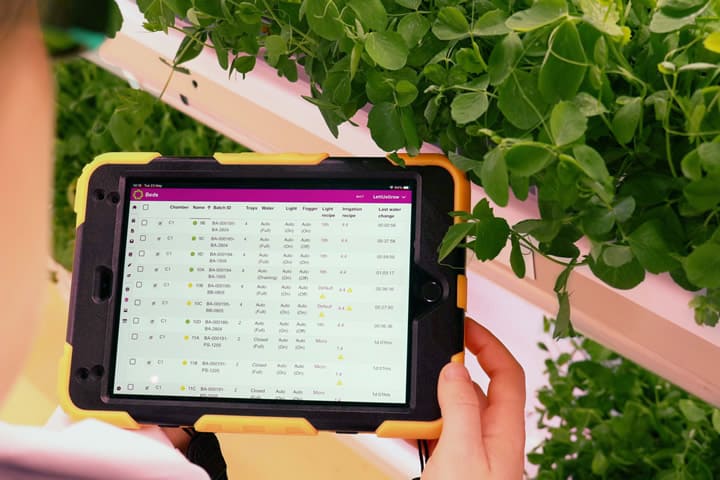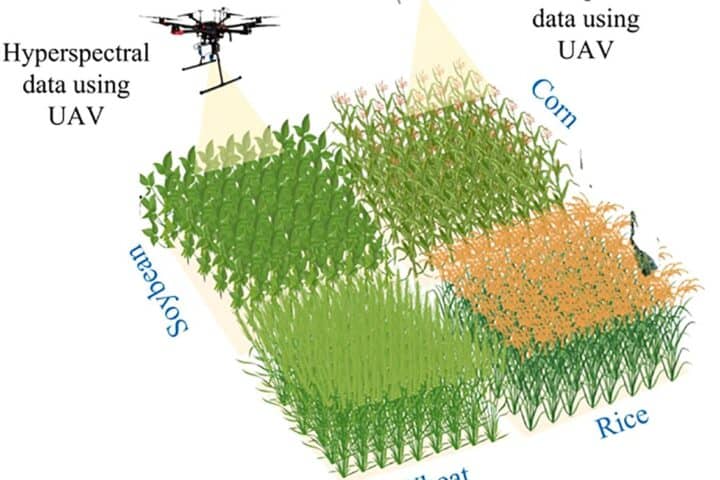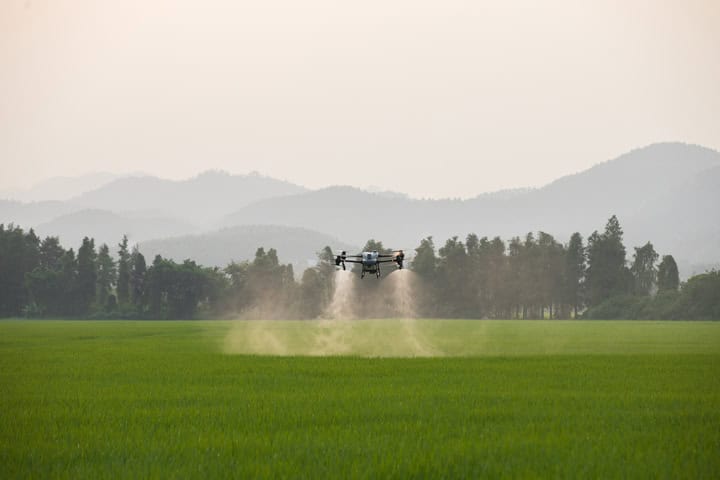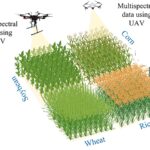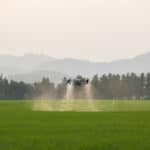Advanced Crop Dynamic Control (ACDC) project and Total Controlled Environment Agriculture (TCEA)
Indoor farming sustainability in a nutshell. Explore how the Advanced Crop Dynamic Control (ACDC) project spearheaded by LettUs Grow and its collaborators revolutionizes Total Controlled Environment Agriculture (TCEA) in the UK. This groundbreaking initiative integrates AI, image-based analysis, and cutting-edge software to enhance energy efficiency and sustainability in indoor farming systems. Discover how this consortium aims to optimize climate control, increase energy efficiency, and automate processes to improve produce quality and reduce carbon footprints. With a focus on renewable energy integration and data-driven decision-making, this project sets a new standard for sustainable agriculture, positioning the UK as a leader in innovative farming practices. Embrace the synergy between technology firms, research institutions, and government support as they strive for a greener, more resilient future.
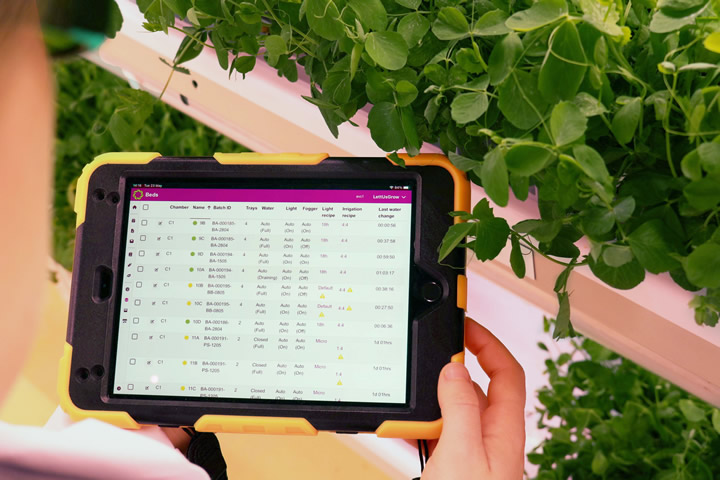
The UK’s Total Controlled Environment Agriculture (TCEA ) landscape is about to change thanks to a ground-breaking project led by LettUs Grow in collaboration with Fotenix, Rothamsted Research, CHAP, and Vertically Urban. Through image-based analysis, AI, and software that optimizes the growing environment based on plant health and dynamic market environments, the Advanced Crop Dynamic Control (ACDC ) project aims to develop highly energy-efficient and sustainable indoor farming systems.
With funding from the Novel Low Emission Food Production Systems competition totaling £757,151 Innovate UK has announced its support for this almost million pound project, acknowledging its ability to transform TCEA operations into green, energy-efficient crop growing systems.
The main goal of the project is to address the TCEA’s widespread inefficiencies by utilizing cutting-edge technologies and methodologies, which will increase energy efficiency.
New goals for energy-efficient crop growing systems
One of the biggest operating costs for TCEA is energy, but it’s also a sustainability issue. To reduce emissions, it’s essential to pick the appropriate energy source and increase energy efficiency.
The consortium aims to develop cutting-edge TCEA growing techniques that maximize climate control efficiencies, including lighting, irrigation, and dietary supply, by combining knowledge from various fields. These upgrades aim to address important TCEA carbon footprint contributors.
The automation of human processes, along with the improvement of produce safety, consistency, quality, and shelf life for both retailers and consumers, is a crucial component of this initiative. The growth environment will be automatically adjusted to achieve this, ushering in a novel era of flexible TCEA technology.
Unprecedented in its methodology, the project will measure crop biological status using an integrated ethereal imaging system and an AI-based plant screening technology created by Fotenix. ” Farms use our cameras to detect pest and disease, so why not use this to follow recipe evolution across economy or premium recipes,” said Felix CEO Charles Veys of nbsp. At such a crucial time for energy and food security, this project will hasten the collaboration of crucial suppliers into an industry-ready package.
A way to improve indoor farming sustainability
With a focus on integrating renewable energy sources, this data will guide illumination intensity, composition, and energy management. All of these factors will be managed by the software platform Ostara, which LettUs Grow previously created. The project aims to develop greener production recipes using cutting-edge flexible control methodologies by giving plant health a top priority.
It’s fascinating to see how Ostara can be used as the entryway connecting AI to farming systems, said Adam Waterman, chief technical officer of the company. Ostara has the ability to use Fotenix’s AI data to automatically adjust controls to correlate plant health with energy usage because it easily integrates with lighting, irrigation, fertigation, and environment systems when sensors detect plant stress.
A high-protein leaf crop called spinach is crucial to this project. It will represent an other protein source that is ready to open up new markets in addition to acting as a test crop to validate the included TCEA technology.
The project’s impact will be carefully assessed by comparing results to current industry standards, cost-benefit analyses, and evaluating changes in crop yield against administrative benchmarks.
” Systems-level integration of novel technologies capitalizes on the UK’s strengths in TCEA and delivers turn-key solutions with global market appeal, so it is excellent to have been able to secure funding for this exciting project” said Dr. Harry Langford, Innovation Network Lead at CHAP. In addition to working together on development projects, CHAP will run demonstration trials in our Vertical Farming Development Center to interact with the industry about the administrative efficiencies attained and the potential to achieve Net Zero.
LettUs Grow and two technology firms, Fotonix and Vertically Urban, are part of the consortium that is leading this initiative. They are collaborating with two renowned research institutions: Rothamsted Research (an academic partner) and CHAP (a Research Technology Organization).
The consortium’s partners commented on this collaboration and expressed their enthusiasm for how it could drastically alter ecological agriculture practices in the UK. They emphasized their dedication to promoting innovation that no only addresses issues with food security but also helps TCEA have a more sustainable and financially sound future.
AI with automation control for the win
According to Dr. Phoebe Sutton, Plant Scientist at Vertically Urban “Vertically Urban is thrilled to be working with top CEA technology companies in the UK, and I am eagerly anticipating the results of our endeavors.”
“This project will unlock the successful versatility of our Programmable luminaires by integrating easily with the brilliant control features offered by Ostara and Fotenix” she continued. For a significant crop, this synergy will lead to significant improvements in both yield and energy efficiency.
“Rothamsted Research is excited to collaborate with partners to create sustainable, energy-efficient indoor farming systems.” The integration of image-based analysis and Artificial to optimize the expanding environment will aid in optimizing the growing conditions while lowering energy needs, which is essential for reducing UK emissions. Linking plant metabolite data will also enable an integrated assessment of the plant’s health and health status. said Dr. Jane Ward, Rothamsted Research’s principal research scientist.
The support of Innovate UK emphasizes how crucial it is for such programs to promote innovation and resilience in the face of difficult international challenges.

